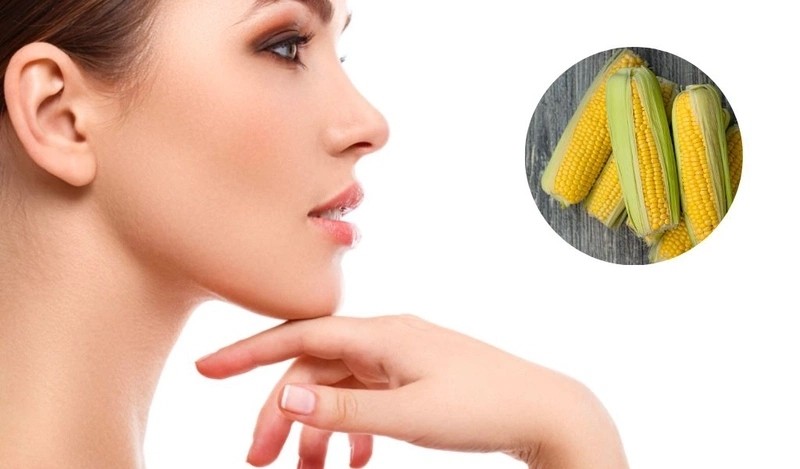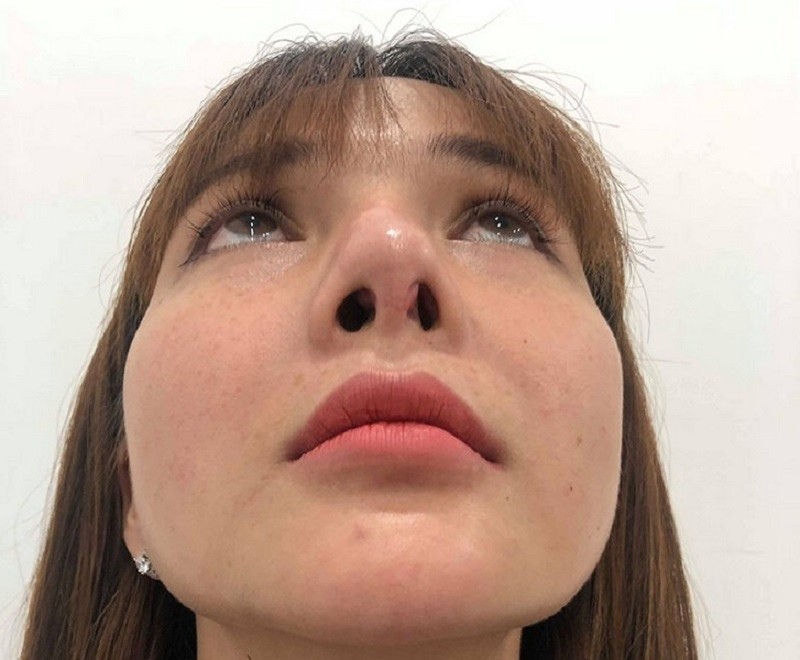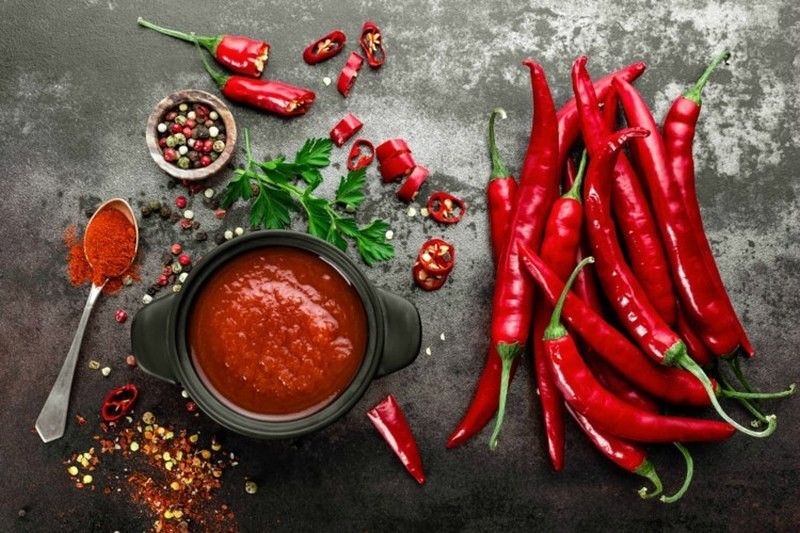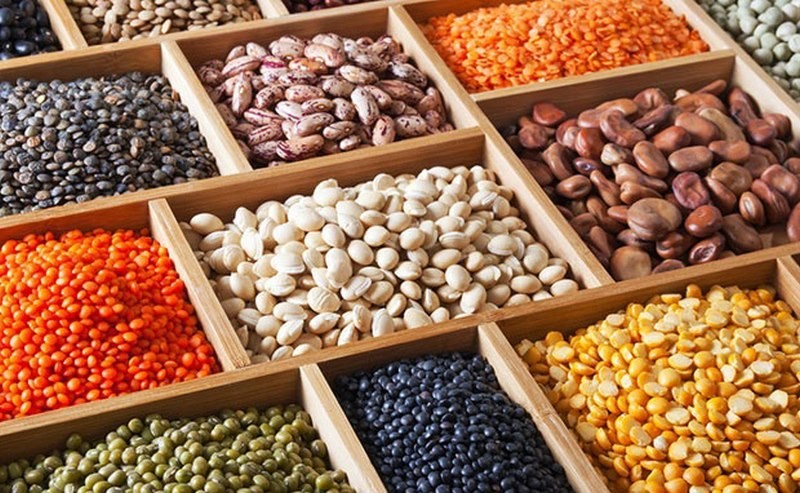Can I eat corn after a nose job? How long should I avoid eating corn?
Beauty secrets
Dec 26, 2024
Dec 26, 2024
Corn is a nutritious food and good for health, which is favored by many people in their diet. However, after a nose job, can you eat corn? If you can't eat corn, what other foods should you consume to heal your wounds quickly? The article below from Aura Beauty will help you answer these questions.
Corn is a nutritious food and good for health, which is favored by many people in their diet. However, after a nose job, can you eat corn? If you can't eat corn, what other foods should you consume to heal your wounds quickly? The article below from Aura Beauty will help you answer these questions.
Corn is a nutritious food and good for health, which is favored by many people in their diet. However, after a nose job, can you eat corn? If you can't eat corn, what other foods should you consume to heal your wounds quickly? The article below from Aura Beauty will help you answer these questions.
1. Can you eat corn after a nose job?
Can you eat corn after a nose job? So far, there has been no scientific research showing that eating corn will cause keloids, but you should not overindulge and should only eat a moderate amount. Nose lifting is a minimally invasive procedure that causes soft tissue damage and requires time to recover. Eating inappropriate food can affect the shape of the nose.
Corn is a nutritious food that helps boost immunity and supports wound healing, so people after a nose job can eat corn. However, many experts argue that eating corn can complicate the healing process and lead to keloids after surgery. As of now, experts have not proven that corn causes keloids, but you should still eat it in moderation.

2. Why should you not eat corn after a nose job?
Can you eat corn after a nose job and why shouldn't we eat too much corn? In fact, there have been some cases where eating too much corn after surgery can lead to the following dangerous complications:
Increased risk of inflammation and swelling: Corn contains a lot of starch and complex sugars, which can irritate the incision after a nose job. The body has to digest starch instead of focusing on healing the wound, increasing the risk of inflammation and swelling and hindering recovery. A rapid rise in blood sugar can also stimulate inflammation, slowing the healing process, so it is advised to avoid eating corn during this period.
Affects hormonal factors and wound healing mechanisms: Research shows that high-glycemic foods like corn can affect insulin, reducing cell regeneration and hindering the healing process. Especially after a nose surgery, a spike in insulin can disrupt the balance of essential biological factors for recovery and anti-inflammation.
Causing blockage and reducing the effectiveness of medications: Corn contains a lot of fiber and complex carbohydrates, which can reduce the effectiveness of anti-inflammatory and analgesic medications if consumed excessively, as they hinder the absorption of drugs. Additionally, some substances in corn can reduce blood circulation, affecting the supply of oxygen and nutrients to tissues, slowing the wound healing process.

3. Foods to avoid after a nose job
Can you eat corn after a nose job? Not only should you limit corn intake, but you should also avoid the following foods to improve the recovery process:
Spicy food: can cause sneezing, nausea, and reduce the effectiveness of anesthetics.
Foods high in salt: increases the risk of swelling and inflammation, slowing recovery. You should only consume less than 5g of salt per day for 1 month.
Seafood: is a type of food that can easily cause irritation, allergies, slow healing, and increase the risk of keloids.
Sticky rice: should be limited for 1 month as it can easily cause swelling, inflammation, and keloids.
Hard, tough, crunchy foods: you should not eat hard foods for 2-3 weeks as they can cause swelling and pain in the nose.
Alcohol, beer: Causes interactions with anesthetics, increases swelling, and slows recovery. Limit until the wound heals.
Caffeinated beverages: should be limited for 3-4 weeks to avoid slowing wound healing.
Fast food, high in fat: should be limited as it will increase cholesterol, affecting wound healing.
Beef: should be avoided for 2 weeks, as it can cause discoloration of the incision and increase the risk of keloids.
Water spinach: should be avoided for 1 month to prevent collagen overproduction, causing keloids.
You should follow the above dietary regimen and use foods reasonably to support the recovery process after the nose job proceeds smoothly.

4. Foods good for recovery after a nose job
After understanding can you eat corn after a nose job, many people will wonder what foods we should replace corn with to speed up wound healing? After a nose job, you should include some of the following foods in your diet to support the recovery process:
Foods rich in vitamins C and E: Help reduce inflammation, prevent keloids, and improve skin health. Foods rich in vitamins C and E include grapefruit, oranges, avocados, and green leafy vegetables, which are easy to find and inexpensive.
Whole grains: Help support wound healing and improve health, but you should avoid them if you are allergic to grains.
Good fats: Help absorb nutrients better. You can get good fats from butter, walnuts, chia seeds, and almonds.
Vegetables: Vegetables like broccoli, lettuce, and asparagus help support quick wound healing.
Pork: Fresh, lean pork is nutritious for tissue regeneration and wound recovery. However, you should avoid frozen pork and fatty parts.
Berries: Berries like strawberries, blueberries, and grapes contain many vitamins and minerals that help reduce inflammation and aid in wound healing.
Foods rich in probiotics: Such as yogurt will help improve digestion and support recovery.
Water: You should drink enough 2-3 liters of water daily to help detoxify the body, reduce swelling, and speed up the healing process.

So the article above from Aura beauty has helped you answer the question can you eat corn after a nose job? Hope our sharing above will help you take better care during the recovery process after surgery, quickly achieving the nose shape you desire.
1. Can you eat corn after a nose job?
Can you eat corn after a nose job? So far, there has been no scientific research showing that eating corn will cause keloids, but you should not overindulge and should only eat a moderate amount. Nose lifting is a minimally invasive procedure that causes soft tissue damage and requires time to recover. Eating inappropriate food can affect the shape of the nose.
Corn is a nutritious food that helps boost immunity and supports wound healing, so people after a nose job can eat corn. However, many experts argue that eating corn can complicate the healing process and lead to keloids after surgery. As of now, experts have not proven that corn causes keloids, but you should still eat it in moderation.

2. Why should you not eat corn after a nose job?
Can you eat corn after a nose job and why shouldn't we eat too much corn? In fact, there have been some cases where eating too much corn after surgery can lead to the following dangerous complications:
Increased risk of inflammation and swelling: Corn contains a lot of starch and complex sugars, which can irritate the incision after a nose job. The body has to digest starch instead of focusing on healing the wound, increasing the risk of inflammation and swelling and hindering recovery. A rapid rise in blood sugar can also stimulate inflammation, slowing the healing process, so it is advised to avoid eating corn during this period.
Affects hormonal factors and wound healing mechanisms: Research shows that high-glycemic foods like corn can affect insulin, reducing cell regeneration and hindering the healing process. Especially after a nose surgery, a spike in insulin can disrupt the balance of essential biological factors for recovery and anti-inflammation.
Causing blockage and reducing the effectiveness of medications: Corn contains a lot of fiber and complex carbohydrates, which can reduce the effectiveness of anti-inflammatory and analgesic medications if consumed excessively, as they hinder the absorption of drugs. Additionally, some substances in corn can reduce blood circulation, affecting the supply of oxygen and nutrients to tissues, slowing the wound healing process.

3. Foods to avoid after a nose job
Can you eat corn after a nose job? Not only should you limit corn intake, but you should also avoid the following foods to improve the recovery process:
Spicy food: can cause sneezing, nausea, and reduce the effectiveness of anesthetics.
Foods high in salt: increases the risk of swelling and inflammation, slowing recovery. You should only consume less than 5g of salt per day for 1 month.
Seafood: is a type of food that can easily cause irritation, allergies, slow healing, and increase the risk of keloids.
Sticky rice: should be limited for 1 month as it can easily cause swelling, inflammation, and keloids.
Hard, tough, crunchy foods: you should not eat hard foods for 2-3 weeks as they can cause swelling and pain in the nose.
Alcohol, beer: Causes interactions with anesthetics, increases swelling, and slows recovery. Limit until the wound heals.
Caffeinated beverages: should be limited for 3-4 weeks to avoid slowing wound healing.
Fast food, high in fat: should be limited as it will increase cholesterol, affecting wound healing.
Beef: should be avoided for 2 weeks, as it can cause discoloration of the incision and increase the risk of keloids.
Water spinach: should be avoided for 1 month to prevent collagen overproduction, causing keloids.
You should follow the above dietary regimen and use foods reasonably to support the recovery process after the nose job proceeds smoothly.

4. Foods good for recovery after a nose job
After understanding can you eat corn after a nose job, many people will wonder what foods we should replace corn with to speed up wound healing? After a nose job, you should include some of the following foods in your diet to support the recovery process:
Foods rich in vitamins C and E: Help reduce inflammation, prevent keloids, and improve skin health. Foods rich in vitamins C and E include grapefruit, oranges, avocados, and green leafy vegetables, which are easy to find and inexpensive.
Whole grains: Help support wound healing and improve health, but you should avoid them if you are allergic to grains.
Good fats: Help absorb nutrients better. You can get good fats from butter, walnuts, chia seeds, and almonds.
Vegetables: Vegetables like broccoli, lettuce, and asparagus help support quick wound healing.
Pork: Fresh, lean pork is nutritious for tissue regeneration and wound recovery. However, you should avoid frozen pork and fatty parts.
Berries: Berries like strawberries, blueberries, and grapes contain many vitamins and minerals that help reduce inflammation and aid in wound healing.
Foods rich in probiotics: Such as yogurt will help improve digestion and support recovery.
Water: You should drink enough 2-3 liters of water daily to help detoxify the body, reduce swelling, and speed up the healing process.

So the article above from Aura beauty has helped you answer the question can you eat corn after a nose job? Hope our sharing above will help you take better care during the recovery process after surgery, quickly achieving the nose shape you desire.
1. Can you eat corn after a nose job?
Can you eat corn after a nose job? So far, there has been no scientific research showing that eating corn will cause keloids, but you should not overindulge and should only eat a moderate amount. Nose lifting is a minimally invasive procedure that causes soft tissue damage and requires time to recover. Eating inappropriate food can affect the shape of the nose.
Corn is a nutritious food that helps boost immunity and supports wound healing, so people after a nose job can eat corn. However, many experts argue that eating corn can complicate the healing process and lead to keloids after surgery. As of now, experts have not proven that corn causes keloids, but you should still eat it in moderation.

2. Why should you not eat corn after a nose job?
Can you eat corn after a nose job and why shouldn't we eat too much corn? In fact, there have been some cases where eating too much corn after surgery can lead to the following dangerous complications:
Increased risk of inflammation and swelling: Corn contains a lot of starch and complex sugars, which can irritate the incision after a nose job. The body has to digest starch instead of focusing on healing the wound, increasing the risk of inflammation and swelling and hindering recovery. A rapid rise in blood sugar can also stimulate inflammation, slowing the healing process, so it is advised to avoid eating corn during this period.
Affects hormonal factors and wound healing mechanisms: Research shows that high-glycemic foods like corn can affect insulin, reducing cell regeneration and hindering the healing process. Especially after a nose surgery, a spike in insulin can disrupt the balance of essential biological factors for recovery and anti-inflammation.
Causing blockage and reducing the effectiveness of medications: Corn contains a lot of fiber and complex carbohydrates, which can reduce the effectiveness of anti-inflammatory and analgesic medications if consumed excessively, as they hinder the absorption of drugs. Additionally, some substances in corn can reduce blood circulation, affecting the supply of oxygen and nutrients to tissues, slowing the wound healing process.

3. Foods to avoid after a nose job
Can you eat corn after a nose job? Not only should you limit corn intake, but you should also avoid the following foods to improve the recovery process:
Spicy food: can cause sneezing, nausea, and reduce the effectiveness of anesthetics.
Foods high in salt: increases the risk of swelling and inflammation, slowing recovery. You should only consume less than 5g of salt per day for 1 month.
Seafood: is a type of food that can easily cause irritation, allergies, slow healing, and increase the risk of keloids.
Sticky rice: should be limited for 1 month as it can easily cause swelling, inflammation, and keloids.
Hard, tough, crunchy foods: you should not eat hard foods for 2-3 weeks as they can cause swelling and pain in the nose.
Alcohol, beer: Causes interactions with anesthetics, increases swelling, and slows recovery. Limit until the wound heals.
Caffeinated beverages: should be limited for 3-4 weeks to avoid slowing wound healing.
Fast food, high in fat: should be limited as it will increase cholesterol, affecting wound healing.
Beef: should be avoided for 2 weeks, as it can cause discoloration of the incision and increase the risk of keloids.
Water spinach: should be avoided for 1 month to prevent collagen overproduction, causing keloids.
You should follow the above dietary regimen and use foods reasonably to support the recovery process after the nose job proceeds smoothly.

4. Foods good for recovery after a nose job
After understanding can you eat corn after a nose job, many people will wonder what foods we should replace corn with to speed up wound healing? After a nose job, you should include some of the following foods in your diet to support the recovery process:
Foods rich in vitamins C and E: Help reduce inflammation, prevent keloids, and improve skin health. Foods rich in vitamins C and E include grapefruit, oranges, avocados, and green leafy vegetables, which are easy to find and inexpensive.
Whole grains: Help support wound healing and improve health, but you should avoid them if you are allergic to grains.
Good fats: Help absorb nutrients better. You can get good fats from butter, walnuts, chia seeds, and almonds.
Vegetables: Vegetables like broccoli, lettuce, and asparagus help support quick wound healing.
Pork: Fresh, lean pork is nutritious for tissue regeneration and wound recovery. However, you should avoid frozen pork and fatty parts.
Berries: Berries like strawberries, blueberries, and grapes contain many vitamins and minerals that help reduce inflammation and aid in wound healing.
Foods rich in probiotics: Such as yogurt will help improve digestion and support recovery.
Water: You should drink enough 2-3 liters of water daily to help detoxify the body, reduce swelling, and speed up the healing process.

So the article above from Aura beauty has helped you answer the question can you eat corn after a nose job? Hope our sharing above will help you take better care during the recovery process after surgery, quickly achieving the nose shape you desire.
REGISTER NOW
REGISTER NOW
REGISTER NOW



Author
Dr. Huynh Cong Thanh
Dr. Huỳnh Công Thành has over 12 years of experience in the field of aesthetics and skin treatment for more than 100,000 clients.
See more
See more
You may be interested

Beauty secrets
Aura Aesthetic answers: Can you drink coconut water after getting a nose job?

Beauty secrets
Aura Aesthetic answers: Can you drink coconut water after getting a nose job?

Beauty secrets
Aura Aesthetic answers: Can you drink coconut water after getting a nose job?

Beauty secrets
Can You Eat Durian After Nose Surgery? Reasons and Considerations After the Surgery

Beauty secrets
Can You Eat Durian After Nose Surgery? Reasons and Considerations After the Surgery

Beauty secrets
Can You Eat Durian After Nose Surgery? Reasons and Considerations After the Surgery

Beauty secrets
Can I eat eggs after nose surgery? How long until I can eat eggs?

Beauty secrets
Can I eat eggs after nose surgery? How long until I can eat eggs?

Beauty secrets
Can I eat eggs after nose surgery? How long until I can eat eggs?

Beauty secrets
Can I drink sugarcane juice after having a nose job? Is there any effect?

Beauty secrets
Can I drink sugarcane juice after having a nose job? Is there any effect?

Beauty secrets
Can I drink sugarcane juice after having a nose job? Is there any effect?


